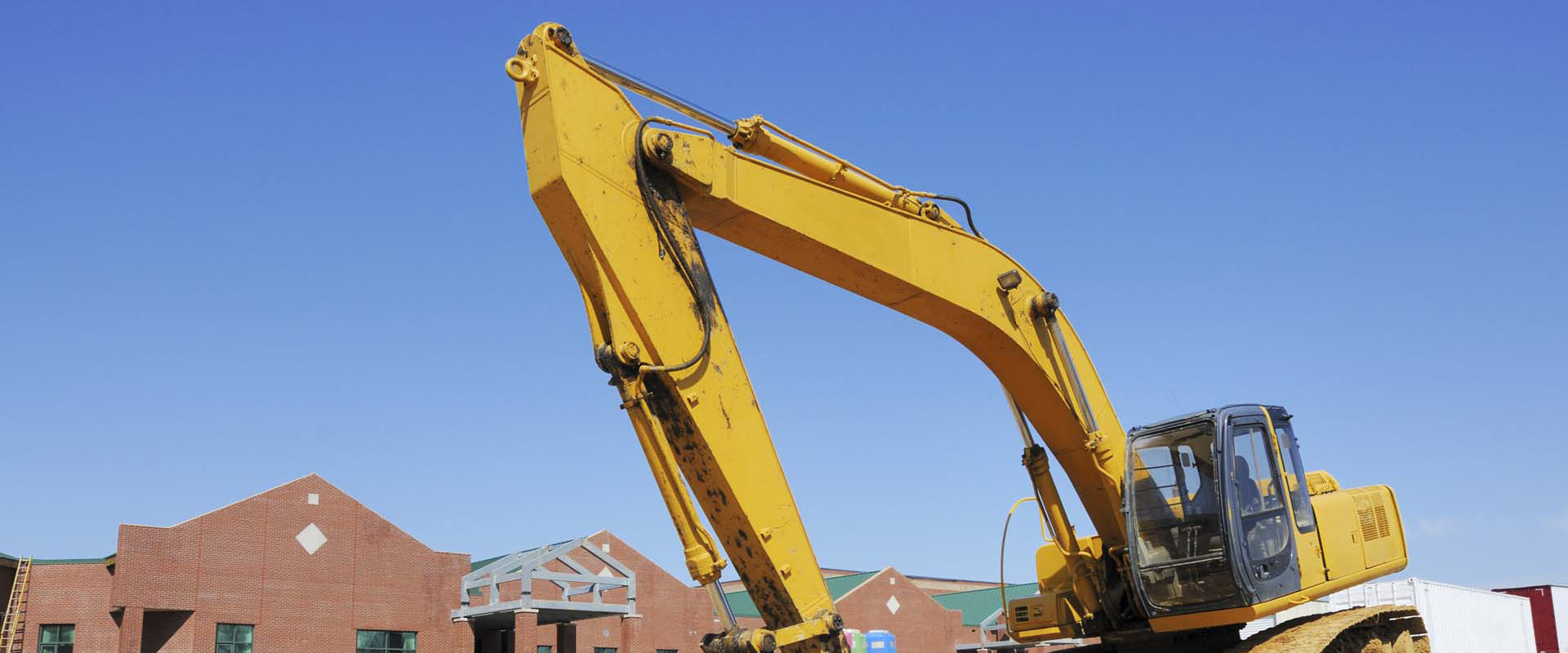Significant Lease-Leaseback and Conflict of Interest Issues Sparked by Appellate Court

June 2015
Number 30
Despite a recent appellate court decision that affirmed the validity of "lease-leaseback" contracts for school districts to build facilities under Education Code §§17400, et seq., a new appellate court decision from a different appellate court district has allowed a lawsuit to proceed against a particular lease-leaseback arrangement that was similar to many in use by school districts in the State. In a portion of the decision relevant to all public agencies, the court also concluded that a civil cause of action for conflict of interest under Government Code section 1090, et seq., can be brought to seek invalidation of a contract where the conflict involves an outside consultant, rather than a public agency employee or officer. The court's decision is not yet final, and may be subject to further review.
Lease-Leaseback
Last year, the Fourth District appellate court in Los Alamitos Unified School District v. Howard Contracting, Inc. (2014) 229 Cal.App.4th 1222, upheld a school district's use of lease-leaseback under Education Code section 17406 to build facilities and confirmed that competitive bidding was not required when using that authority. (See Client News Brief No. 62, September 2014.)
This week, in Davis v. Fresno Unified School District (June 1, 2015) case no. F068477 (5th App. Dist.), the court agreed with Los Alamitos that lease-leaseback can comply with the law, and does not require competitive bidding. However, the court allowed a lawsuit, currently only at the pleading stage, to move forward challenging a specific lease-leaseback arrangement. The case was sent back to the trial court for further proceedings and, as a result, the ultimate outcome of this case may be decided on appeal or after a trial on the specific issues. For these reasons, it is too soon to say to what extent Davis may impact other school districts in their specific lease-leaseback arrangements. The case does not directly address lease-leaseback for other public agencies.
While it is premature to say that Davis has changed or will change the landscape of lease-leaseback, the court's decision calls into question a number of aspects of many school district lease-leaseback agreements. A primary concern regarding the lease-leaseback agreement addressed by the court is that the agreement functioned more like a construction contract than a "true" lease. The court addressed a number of alleged characteristics of the school district's specific contract documents, and concluded that the plaintiff might be able to establish at trial that the agreement was not a "true" lease under the lease-leaseback statutes. The court opined that in order to be a lease, the statute requires the district to occupy and have use of the site for some period of time while the lease and leaseback (sublease) were in effect. The court also opined that a lease-leaseback under Section 17406 must function as a financing vehicle for the school district, although the court rejected the notion that a school district must lack access to facility funding in order to use lease-leaseback. The court's conclusions are debatable, and may yet be subject to further judicial review.
Conflict of Interest
In addition to the lease-leaseback issue, the Court addressed conflict of interest in a manner that is applicable to all local agencies. The court allowed further legal action on a claim that the contractor, as a pre-construction consultant to the school district, participated in the making of a contract in which it subsequently became financially interested, and thus potentially violated conflict of interest laws. The plaintiff alleged that the contractor had a conflict of interest because it developed the plans and specifications for the project, and simultaneously acted in its role as a government agency consultant to participate in making the overall lease-leaseback contract, which was a substantial financial benefit to the contractor. While the court acknowledged prior case law holding that an outside consultant cannot be criminally prosecuted for an alleged conflict of interest violation under Government Code section 1090, the court left open the possibility that the consultant might be found to have committed a violation that can be pursued in a civil lawsuit. Such a lawsuit could seek to invalidate the contract in question. This opens the door to potential scrutiny of outside consultants in a variety of contexts beyond construction. The court did, however, find that the Political Reform Act (Gov. Code §§ 87100, et seq.) does not apply to an outside corporation offering consulting services.
Lozano Smith will be monitoring this case closely and will report on any significant developments. Because of the scrutiny of the lease-leaseback authority that will likely follow the Davis case, and may continue until the case is finally resolved, school districts may wish to work particularly closely with their legal counsel on lease-leaseback issues and agreements. Similarly, for all public agencies, care should be taken when considering issuing contracts to consultants who have previously advised the agency on a related matter.
If you have any questions regarding this case or lease-leaseback agreements that school districts may have in place or are considering, please contact one of our nine offices located statewide. You can also visit our website, follow us on Facebook or Twitter, or download our Client News Brief App.
Number 30
Despite a recent appellate court decision that affirmed the validity of "lease-leaseback" contracts for school districts to build facilities under Education Code §§17400, et seq., a new appellate court decision from a different appellate court district has allowed a lawsuit to proceed against a particular lease-leaseback arrangement that was similar to many in use by school districts in the State. In a portion of the decision relevant to all public agencies, the court also concluded that a civil cause of action for conflict of interest under Government Code section 1090, et seq., can be brought to seek invalidation of a contract where the conflict involves an outside consultant, rather than a public agency employee or officer. The court's decision is not yet final, and may be subject to further review.
Lease-Leaseback
Last year, the Fourth District appellate court in Los Alamitos Unified School District v. Howard Contracting, Inc. (2014) 229 Cal.App.4th 1222, upheld a school district's use of lease-leaseback under Education Code section 17406 to build facilities and confirmed that competitive bidding was not required when using that authority. (See Client News Brief No. 62, September 2014.)
This week, in Davis v. Fresno Unified School District (June 1, 2015) case no. F068477 (5th App. Dist.), the court agreed with Los Alamitos that lease-leaseback can comply with the law, and does not require competitive bidding. However, the court allowed a lawsuit, currently only at the pleading stage, to move forward challenging a specific lease-leaseback arrangement. The case was sent back to the trial court for further proceedings and, as a result, the ultimate outcome of this case may be decided on appeal or after a trial on the specific issues. For these reasons, it is too soon to say to what extent Davis may impact other school districts in their specific lease-leaseback arrangements. The case does not directly address lease-leaseback for other public agencies.
While it is premature to say that Davis has changed or will change the landscape of lease-leaseback, the court's decision calls into question a number of aspects of many school district lease-leaseback agreements. A primary concern regarding the lease-leaseback agreement addressed by the court is that the agreement functioned more like a construction contract than a "true" lease. The court addressed a number of alleged characteristics of the school district's specific contract documents, and concluded that the plaintiff might be able to establish at trial that the agreement was not a "true" lease under the lease-leaseback statutes. The court opined that in order to be a lease, the statute requires the district to occupy and have use of the site for some period of time while the lease and leaseback (sublease) were in effect. The court also opined that a lease-leaseback under Section 17406 must function as a financing vehicle for the school district, although the court rejected the notion that a school district must lack access to facility funding in order to use lease-leaseback. The court's conclusions are debatable, and may yet be subject to further judicial review.
Conflict of Interest
In addition to the lease-leaseback issue, the Court addressed conflict of interest in a manner that is applicable to all local agencies. The court allowed further legal action on a claim that the contractor, as a pre-construction consultant to the school district, participated in the making of a contract in which it subsequently became financially interested, and thus potentially violated conflict of interest laws. The plaintiff alleged that the contractor had a conflict of interest because it developed the plans and specifications for the project, and simultaneously acted in its role as a government agency consultant to participate in making the overall lease-leaseback contract, which was a substantial financial benefit to the contractor. While the court acknowledged prior case law holding that an outside consultant cannot be criminally prosecuted for an alleged conflict of interest violation under Government Code section 1090, the court left open the possibility that the consultant might be found to have committed a violation that can be pursued in a civil lawsuit. Such a lawsuit could seek to invalidate the contract in question. This opens the door to potential scrutiny of outside consultants in a variety of contexts beyond construction. The court did, however, find that the Political Reform Act (Gov. Code §§ 87100, et seq.) does not apply to an outside corporation offering consulting services.
Lozano Smith will be monitoring this case closely and will report on any significant developments. Because of the scrutiny of the lease-leaseback authority that will likely follow the Davis case, and may continue until the case is finally resolved, school districts may wish to work particularly closely with their legal counsel on lease-leaseback issues and agreements. Similarly, for all public agencies, care should be taken when considering issuing contracts to consultants who have previously advised the agency on a related matter.
If you have any questions regarding this case or lease-leaseback agreements that school districts may have in place or are considering, please contact one of our nine offices located statewide. You can also visit our website, follow us on Facebook or Twitter, or download our Client News Brief App.
As the information contained herein is necessarily general, its application to a particular set of facts and circumstances may vary. For this reason, this News Brief does not constitute legal advice. We recommend that you consult with your counsel prior to acting on the information contained herein.






